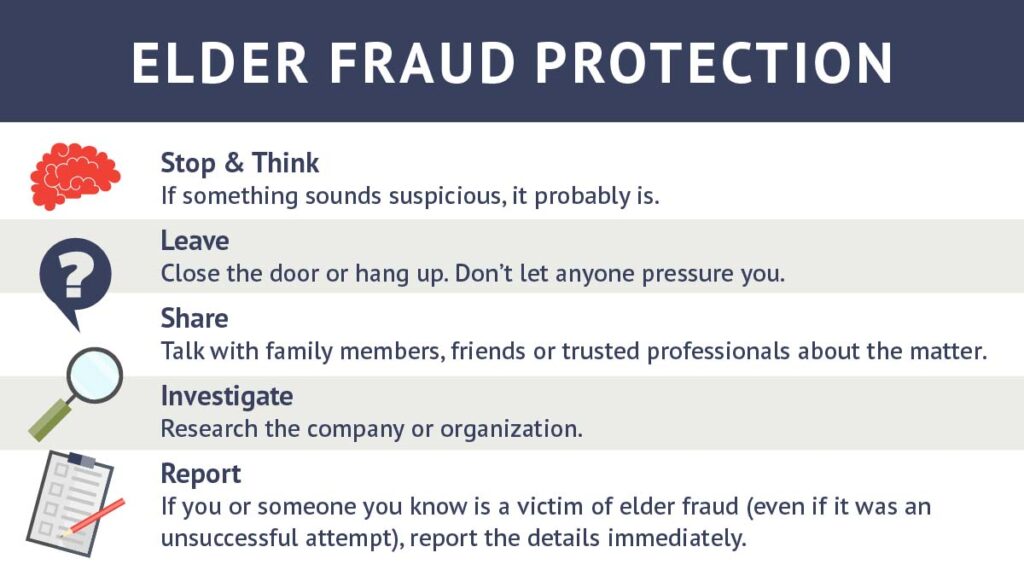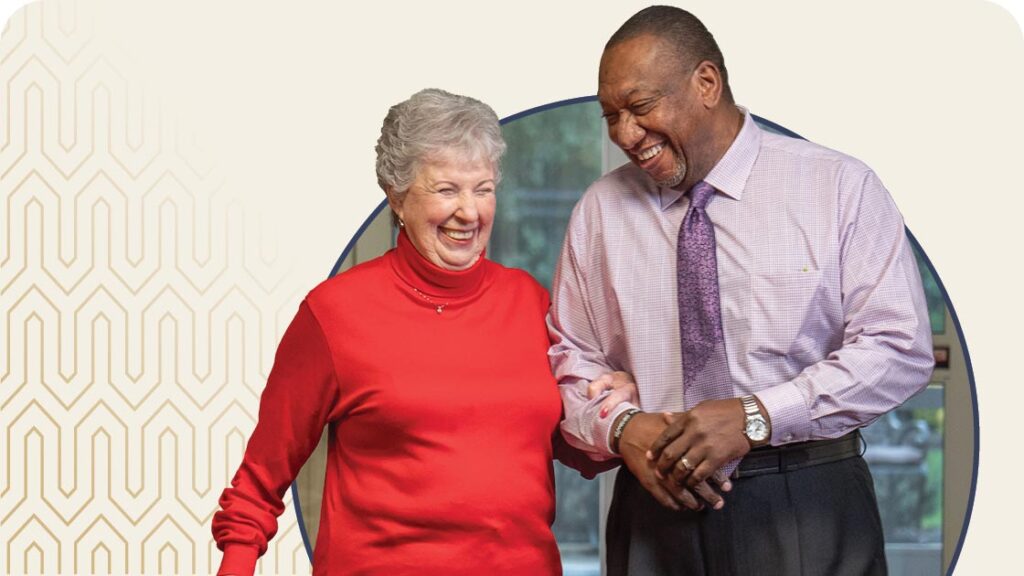More results...
Feb 14, 2024|Tips & Tricks

If there’s one thing more certain than taxes, it’s elder fraud. According to the FBI, over $3 billion disappears annually from the accounts of older Americans, proving that not all disappearing acts happen on the magician’s stage. Scammers have turned targeting seniors into an art form, a not-so-funny comedy where the punchline is your compromised personal information.
Adults over 60 years old are the primary target of elder fraud, whether it’s done online, by phone or face-to-face. Some criminals are out to steal personal information like Social Security, credit card and bank account numbers. Some take advantage of your willingness to do good by posing as legitimate charities. Others promise products and services that never materialize.
By learning about online safety, protecting personal information and staying cautious about finances, you can keep yourself or someone you love from being the next elder fraud victim.
Statement of Fairness: Considering senior living options for yourself or a loved one? We’re here to help at every step. And even though we specialize in independent and assisted living communities, our goal is for YOU to find your best path to gracious retirement living, and part of how we achieve that is by providing reliable information on all types of senior living, not just the ones we offer. When our offerings serve as useful illustrations to a specific topic, you can find that information in the attached sidebar.
Disclaimer: This content is not intended as financial advice. Remember to review your plans and budgets with a licensed financial professional when making significant financial decisions.
It’s important to stay on your toes
Because older adults are often more polite and trusting, keeping ahead of elder fraud swindlers can be challenging. Use your common sense, and if it sounds too good to be true, it probably is.
Be Alert
It used to be easier to spot a scam. Words were misspelled, and sentences didn’t sound quite right. Now the bad guys are getting craftier, and you may not be able to tell if the call, email, text or social media invite is real or not. Take your time and investigate.
If you’re worried about your loved one, check in regularly to see who they have been talking to. Open communication can uncover information vital to elder fraud protection.
Be Proactive
Before working with a new company or organization, do your homework. The company’s online reviews may not be telling the real story. Check with the Better Business Bureau to see if they’re reputable. When someone asks you for a donation from an organization you’ve never heard of, look them up on the Charity Navigator website.
 At Linwood Estates, we streamline all monthly utilities into one fee, reducing the risk of fraudulent activities. By consolidating bills, we not only provide convenience but also enhance security, ensuring our residents can enjoy a worry-free living experience. Discover peace of mind at our community.
At Linwood Estates, we streamline all monthly utilities into one fee, reducing the risk of fraudulent activities. By consolidating bills, we not only provide convenience but also enhance security, ensuring our residents can enjoy a worry-free living experience. Discover peace of mind at our community.
Schedule a tour of Linwood Estates.


Cybercriminals target companies both big and small. In case of a large data breach, the company must alert you about what personal information has been exposed and stolen.
Take these steps if you’re part of a large data breach or if you’re a victim of elder fraud:
Many elder fraud victims are too embarrassed to make a report. But sharing that information can help others and increase the chances of the criminals getting caught. If someone takes advantage of you, a friend or a family member, contact a government agency that will pursue these criminals. Your voice, combined with others, can dismantle these deceptive schemes and safeguard the financial well-being of countless individuals.
Report the incident to the FBI at ic3.gov. You can also call the Department of Justice (DOJ) Elder Fraud Hotline at 833-FRAUD-11 (833-372-8311).

It’s not just about where you want to live – it’s about how you want to live. We invite you to visit us at Hudson Estates, the finest senior living in Lansdale, Pennsylvania. You’ll get to know (and love!) our residents and senior living experts. Our dedicated team members are more than just professionals – they’re compassionate allies. Ready to assist residents through any challenge, our team provides unwavering support, turning obstacles into opportunities for growth and connection. Experience the difference of having a caring team by your side, making every day extraordinary.
Schedule a tour of Hudson Estates.
“When criminals steal the hard-earned life savings of older Americans, we will respond with all the tools at our disposal,” says FBI Springfield Field Office Special Agent in Charge David Nanz.
If you contact the Federal Trade Commission (FTC), they will share your report with more than 2,800 law enforcers. Call 877-FTC-HELP (877-382-4357) or TTY 866-653-4261. You can also contact them online at ftc.gov/complaint.
Unless you’re in imminent danger, you don’t have to call 911. Find the dispatch number of your local police department and give them your report.
The National Council on Aging website is filled with elder fraud protection advice. You’ll learn how to spot the latest scams that put you at risk. Their post Avoiding Scams and Fraud for Older Adults has in-depth, up-to-date information for older adults, caregivers and other professionals. And from helping you steer clear of health insurance fraud and Medicare scams to telemarketing and business swindles, read 22 Tips for Seniors to Avoid Scams.
Elder fraud is ever-changing, with new scams popping up all the time. Scammers are experts at pressuring you into giving out your personal information or agreeing to things that don’t seem right.
If you do find yourself the victim of elder fraud tactics, take the necessary steps to secure your accounts. If you need assistance getting this done, ask a trusted family member, friend or professional. Then help yourself and others by reporting the crime to government-sponsored agencies.
You’re not alone. Adults of all ages are targeted (and often fooled) by scammers. Take your time to research, weigh your options and make logical decisions. By staying alert and proactive, you’ll be ready to stop those fraudsters in their tracks.
Feb 28|Health & Wellness
Feb 07|Tips & Tricks
Nov 19|Senior Living